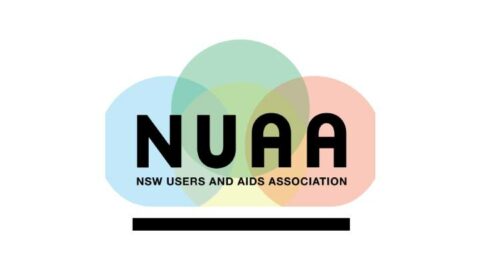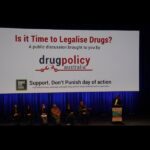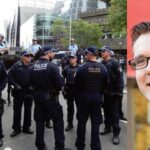NSW Government Stalls on Inevitable Drug Reforms: An Interview With NUAA’s Dr Mary Ellen Harrod
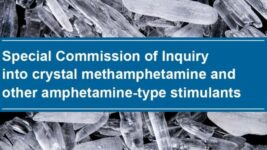
Prior to COVID entering our world, the issue of illicit substances and the need to move away from the punitive law enforcement approach the NSW government and most others around the nation are taking to them was front and centre in this state.
The deaths of a number of young Australians at festivals had brought the drug issue to the fore in the summer of 2018-19, and it was at this time that the Berejikilian government launched the Special Commission of Inquiry into the Drug “Ice” due to the rising use of the illegal substance.
However, two and half years later, nothing has been done about the 109 recommendations delivered by the $10 million inquiry, and NUAA (the NSW Users and AIDS Association) is calling out the Perrottet government on its ongoing lack of action on this, as it’s affecting countless lives.
The Coalition has failed to respond to its inquiry, which was an acknowledgment that the issue of illegal drugs is a priority, and when attorney general Mark Speakman delivered a modest proposal to deal with personal possession with an infringement notice, it’s been shot down by cabinet twice.
Rejecting the tide of change
Released on Thursday, the 16th National Wastewater Drug Monitoring Program report outlines that in comparing data with 25 European nations, New Zealand and South Korea, Australia ranks highest in terms of per capita use of amphetamines, which locally means the drug ice for the most part.
NUAA points out that the Coalition’s stalling on the inquiry is preventing the shift that’s needed, which would see issues with illicit drugs dealt with via health programs, rather than the current heavy-handed law enforcement approach that leads to arrests, increased harms and even deaths.
Indeed, the initial reaction to the recommendations of ice inquiry commissioner Professor Dan Howard SC was to reject five of his suggestions outright. These were some of the most prominent long-term community wants, and the reaction indicated a level of hostility towards his findings.
The Berejiklian government’s interim response rejected recommendations for the roll out of pill testing, the ditching of drug detection dogs, expanding the provision of supervised injecting rooms, the roll out of needle and syringe programs into prisons and drug decriminalisation.
Prohibition is collapsing
The ACT sits neatly within NSW, yet it’s its own jurisdiction. And right now, in the capital territory, it’s legal to use, possess personal amounts of and cultivate cannabis. And the ACT government has just announced its decriminalising drugs and trialling fixed site pill testing.
The drug law reforms in the nation’s capital reflect a general shift toward treating drugs as a health issue and not a crime, which has been taking place globally since 2012. And peer-based drug user organisation NUAA is calling on the Perrottet government to act on the inevitable.
Sydney Criminal Lawyers spoke to NUUA chief executive Dr Mary Ellen Harrod about the rejection of the attorney general’s proposals, the drug law reforms in the ACT, and how she considers the progress being made in the capital might finally come to fruition in this state.
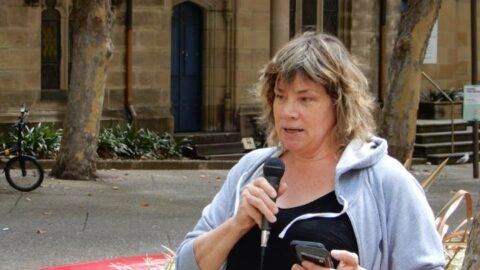
Two years and five months after the NSW government established the inquiry into ice, the Coalition has done nothing about the 109 recommendations that it made, except to immediately refuse five of them. Mary, what impact is this delay having on the community?
There are two parts of the community where we see the effects the most. I’ll start with the people who work in the AOD sector, because there’s a palpable sense of overwork and frustration.
I go to a lot of meetings and interact with a lot of people. With those in the industry, such as nurse managers from alcohol and other drug services, people that work in residential rehabs to addiction medicine specialists, and there’s this sense of frustration and possibly even betrayal, because everyone’s conscious that there has been no action on the recommendations.
People are leaving the sector. I know senior clinicians that are thinking about leaving. It’s quite frustrating.
And this affects the community at large and, in particular, people that need help because whether they know anything about the ice inquiry or not, it means that our services are struggling and it’s even harder to meet the demand.
We knew that there was an unmet demand when they called the inquiry in 2018. And just like every other sector, it’s gotten worse through COVID. Waiting lists have increased and its harder to get GP services.
So, everything that was happening in 2018 that resulted in the call for the ice inquiry has gotten worse, and in the meantime, the government is sitting on its hands about it.
At the time former NSW premier Gladys Berejiklian established the inquiry, she was under a lot of pressure to do something about the drug issue, especially in terms of drug-related deaths at festivals.
Since the handing down of the recommendations, both the former and current premiers have done nothing. So, why would the government commission such an inquiry and then stall on acting upon it?
The responses were different for Berejiklian and Perrottet. And COVID has played a factor here, as the focus was not on the response for those two years.
But fundamentally, the findings weren’t what they wanted to hear. Berejiklian, in particular, is somebody who always wanted to take a tough on drugs approach, and we know that doing that is not an evidence-based approach.
The recommendations of the inquiry were at odds with this stance, as was seen with the rejection of five of the recommendations outright.
It was at odds with the overall stance that they wanted to project.
With Perrottet, there’s not enough heat around this issue. With the festival deaths, it’s not like nothing has happened. There has been a huge amount of work behind the scenes, particularly with festivals to reduce the harms at events.
There have been a number of deaths recently, and clusters of overdose deaths, particularly in Aboriginal communities but because they aren’t middle class white kids at high-profile events, like festivals, the media interest is not strong.
So, it’s just died down as an issue and it gets shoved along to the too-hard basket.
The people struggling the most, people who are the most affected by the lack of action, are the people that are least able to advocate for themselves and they aren’t receiving the help and support they need.
Attorney general Mark Speakman did raise a drug diversion proposal, which was a compromise on the community desire for decriminalisation.
Speakman first flagged the proposal in late 2020, and his second watered down version was recently put on the table, but both were shot down by cabinet.
The last one involved two discretionary initial $400 fines for personal drug possession, prior to an individual having to face court.
What did you think about the Speakman proposals that cabinet found too radical on both occasions?
They are far from ideal. But it’s at least some form of positive change and some form of acknowledgement that these issues don’t belong in the criminal arena.
There’s a lot to criticise in criminal infringement notices, but it would be worth sitting down and working through the issues.
In terms of those proposals being too radical and not making it through cabinet, the police response to part of the inquiry was that “the commissioner of police supports other penalties that promote harm minimisation and provide appropriate support services, such as education and health connection to them”.
“For example, the commissioner of police advocates for the use of criminal infringement notices to reduce harm.”
It’s absolutely disgusting that this issue that’s supported by the police is now being battered around like a political football.
It’s such a minimal kind of change. It’s crazy that they’re not even taking the advice of their own police commissioner, or the former commissioner because they’ve waited so long.
The police are usually one of the major hurdles to get over.
Yeah, cabinet is saying it’s too radical when their own police service supported it. I just don’t get that.
The ACT has legalised the personal use, possession and cultivation of recreational cannabis. It’s opening a six-month fixed site pill testing trial soon. And the government has determined to decriminalise the possession and use of the most widely used illicit substances.
How do these developments reflect on our state?
We look a bit silly and out of touch. Cannabis is legal in many places across the world and yet we are dragging our feet there. We are dragging our feet on any meaningful reform.
NSW is always touting its record with evidence-based health, especially with its HIV response, which is a good example. We do have a great HIV response but in this one other area we’re falling short.
The way that we’re falling short is that we’re not taking an evidence-informed response to the issue. And why is this the one area of health where we don’t do that? It just makes us look a bit backwards.
Which of the ice inquiry recommendations would NUAA like to see prioritised?
First and foremost, NUAA would like to see a whole-of-government alcohol and other drug strategy that is properly funded.
The reason why it’s the highest priority is that the strategy would have to be evidence-based which would have to discard the punitive approach that we currently take.
There is actually a draft strategy that was done five years ago that has never been signed off by the minister, and I believe it’s because of that reason: because any evidence-based strategy means that we need to radically rethink our approach.
The other recommendation, which goes hand in hand with that is we need to take an approach to drugs that positions it as a health and social issue, rather than a criminal justice issue.
And lastly, Mary, you’ve long been advocating in the harm reduction space and you’ve witnessed numerous politicians refusing to act on the drug issue both in this state and nationally.
How do you consider we’re going to see the same sort of movement that we are seeing in the ACT in this state?
In NSW, it needs to become an election issue, and the people advocating for this issue need to work together and create a multipronged approach. There are already people who are taking different approaches.
But we need to get coordinated and unified in our advocacy. Marriage equality is a great example of what can be achieved.
Part of that approach can be seen in the work being done by Cate Faehrmann in publicly stating that she’s used drugs. That’s happening here and right across the world. It’s becoming just a normal part of life.
But we need to do this in an intelligent and coordinated fashion. We need to work together on it.
